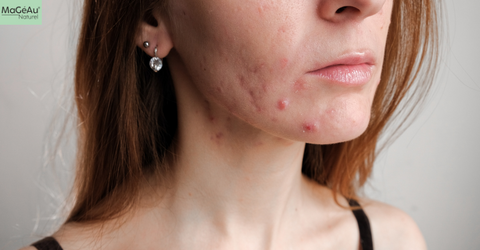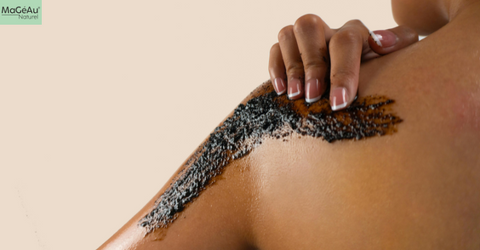Radiation therapy is an essential treatment for many cancer patients, but it can be tough on the skin. If you or a loved one undergoes radiotherapy, you may experience dryness, redness, peeling, irritation, and even painful sores. While these side effects are common, many people don’t realise that the right skincare routine can make a significant difference. Taking care of your skin before, during, and after radiation can help prevent long-term damage and improve comfort throughout treatment.
Why Radiation Therapy Affects the Skin
Radiotherapy works by targeting cancer cells, but it also affects healthy skin cells in the treatment area. This can weaken the skin’s natural barrier, making it more sensitive and prone to irritation. Over time, the skin may become dry, inflamed, or cracked, leading to discomfort and an increased risk of infection.
Many people are unaware that skin reactions from radiation therapy can worsen if they use the wrong skincare products. Ingredients such as alcohol, artificial fragrances, and harsh chemicals can further irritate the skin. Instead, using gentle, nourishing products with natural ingredients can help maintain skin health and reduce irritation.
Skincare Routine for Radiation Therapy
The key to managing skin health during radiotherapy is to use hydrating, soothing, and protective products. Here’s a simple, effective skincare routine to follow:
1. Gentle Cleansing: Keep It Soft and Nourishing
Using a harsh cleanser can strip the skin of its natural oils, making it even more sensitive. A gentle cleanser with magnesium, vitamin E, and beetroot extract can be an excellent choice.
- Magnesium helps strengthen the skin barrier and supports skin repair.
- Vitamin E is a powerful antioxidant that protects against free radicals and soothes irritation.
- Beetroot extract helps retain moisture and reduces redness.
Tip: If you are experiencing skin irritation from radiation therapy, avoid scrubbing the treated area. Instead, use your fingertips to gently cleanse, and pat dry with a soft towel. If your skin is too sensitive, consider cleansing with micellar water or a mild natural cleanser to reduce friction.
2. Hydrating Showers: Avoid Drying Out the Skin
Many people don’t realise that long, hot showers can worsen dryness and irritation. Using a hydrating shower gel with grape seed oil, aloe vera, and turmeric can help keep your skin moisturised and calm.
- Grape seed oil is rich in antioxidants and deeply hydrates the skin.
- Aloe vera soothes burns and reduces inflammation.
- Turmeric has natural anti-inflammatory and antibacterial properties to protect the skin.
Tip: If your skin is extra sensitive or painful, try short sponge baths instead of long showers. Use a soft, damp washcloth instead of direct water pressure to prevent irritation in radiation-exposed areas.
3. Lock in Moisture with a Nourishing Body Lotion
Radiotherapy can cause extreme dryness, so keeping your skin hydrated is crucial. A body lotion containing shea butter, aloe vera, and magnesium provides deep nourishment and protection.
- Shea butter is packed with vitamins and fatty acids to keep skin soft and smooth.
- Aloe vera helps cool and soothe irritated skin.
- Magnesium supports skin regeneration and hydration.
Tip: Apply mild or fragrance-free, hypoallergenic lotion at least twice a day. If your radiation treatment area is too sensitive to touch, apply lotion around the area instead to keep surrounding skin healthy.
4. Protecting Your Hands: Avoid Cracks and Peeling
Many people forget that hands can also suffer during radiation therapy. A good hand lotion with cacao butter, aloe vera, magnesium, and vitamin E can keep your hands soft and protected.
- Cacao butter deeply hydrates and protects against dryness.
- Aloe vera calms irritation and redness.
- Magnesium helps maintain the skin’s moisture balance.
- Vitamin E fights free radicals and promotes healing.
Tip: If you are undergoing chemotherapy along with radiation, your hands may be more prone to peeling and sensitivity. Wear cotton gloves at night after applying lotion to help lock in moisture and protect against cracks.
5. Lip Care: Prevent Chapping and Cracks
Dry lips are a common yet often overlooked side effect of radiotherapy. Using a nourishing lip balm with shea butter, vitamin E, and candelilla wax can help prevent chapping and cracks.
- Shea butter keeps lips soft and prevents moisture loss.
- Vitamin E repairs damaged skin and provides antioxidant protection.
- Candelilla wax forms a protective barrier against external irritants.
Tip: Radiation therapy can cause mouth dryness or sores, making lip care even more essential. Drink plenty of hydrating fluids and avoid licking your lips, as it can worsen dryness. If your lips become painful or cracked, use a SPF30 natural lip balm for extra protection.
Additional Tips for Skin Protection
- Avoid Sun Exposure: Radiation-treated skin is more sensitive to the sun. Always wear loose, protective clothing and use a gentle, mineral-based sunscreen.
- Wear Soft, Breathable Fabrics: Cotton or bamboo fabrics are best for reducing irritation.
- Stay Hydrated: Drinking plenty of water helps keep your skin hydrated from within.
- Avoid Scratching or Rubbing: If your skin feels itchy, try applying a cool compress instead of scratching.
- Talk to Your Doctor: If you experience severe irritation or open sores, consult your healthcare provider for specialised care.
Radiation Therapy Skincare: Protecting Your Skin Every Step of the Way
Skincare during radiotherapy is not just about feeling comfortable, it’s about protecting your skin from lasting damage. Many people don’t realise how much of a difference the right products can make in reducing irritation, preventing dryness, and promoting healing. By choosing skincare products with nourishing ingredients like magnesium, aloe vera, vitamin E, and Shea butter, you can support your skin through every stage of treatment.
If you’re preparing for radiation therapy or currently undergoing treatment, taking a few extra steps to care for your skin can make a world of difference. A little attention to your skincare routine can help you feel more comfortable and confident during this challenging time.





Comments (0)
There are no comments for this article. Be the first one to leave a message!